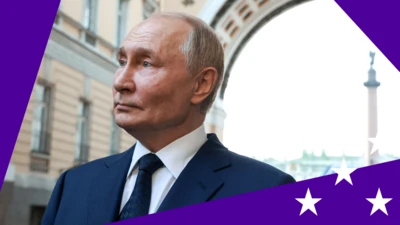We've updated our Privacy and Cookies Policy
We've made some important changes to our Privacy and Cookies Policy and we want you to know what this means for you and your data.
UK-US extradition treaty overhaul urged
British people are losing confidence in the UK's extradition arrangements with the US and major changes are needed "to restore public faith", MPs have said.
The Commons ΒιΆΉΤΌΕΔ Affairs Select Committee believes it is "easier to extradite a British citizen to the USA than vice versa".
Public concern had been highlighted by recent cases including that of 65-year-old Christopher Tappin, the MPs said.
The US says the treaty promotes "justice in both our countries".
The MPs' recommendations include:
- Amending the text of the 2003 treaty to ensure the same test applies for extradition from both countries
- Allowing a judge to decide that a person is tried in the UK in cases where both countries have jurisdiction
- Introduction of an initial test of someone's guilt
The MPs said their proposals were not a criticism of the US justice system, but instead acknowledged "the importance of robust extradition arrangements between our two countries".
"Such extradition arrangements are now threatened by loss of public confidence in the UK and there is a risk that, with time, that lack of confidence will translate into wider disaffection," the report said.
"We believe that the government should act now to restore public faith in the treaty."
Parliament's Joint Committee on Human Rights is among bodies to have called for a renegotiation of the treaty, amid controversy over a number of cases involving British citizens.
Mr Tappin, a retired businessman of Orpington, south-east London, was extradited to the US last month for allegedly selling batteries for Iranian missiles, charges he denies.
Student Richard O'Dwyer, 23, of Chesterfield, is fighting extradition on copyright infringement charges over a website he ran in the UK.
And Gary McKinnon, 46, from north London, who has Asperger's syndrome, has been fighting extradition on computer-hacking charges for 10 years.
Committee chairman Keith Vaz said these cases had "highlighted public concern that these arrangements are one-sided".
He added: "Evidence to the committee has shown that the current arrangements do not protect the rights of British citizens.
"The government must remedy this immediately."
But, in a statement to the committee, US ambassador Louis Susman argued the extradition treaty was fair, balanced and "promotes the interests of justice in both our countries".
He added: "It would be wrong to view the extradition treaty through the prism of individual cases where sentiment and emotion can cloud reality and lead to misrepresentation."
An independent review by senior judge Sir Scott Baker last year found the treaty was fair to British citizens.
Top Stories
More to explore
Most read
Content is not available








